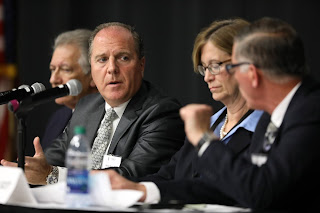In IR-2022-125 the Internal Revenue Service added to its annual "Dirty Dozen" scams list for the 2022 filing season, with a warning to taxpayers to avoid being misled into using bogus tax avoidance strategies.
The IRS warned taxpayers to watch out for promoters peddling these schemes. As part of its mission, the IRS is focused on high-income taxpayers who engage in various types of tax violations.
“These tax avoidance strategies are promoted to unsuspecting folks with too-good-to-be-true promises of reducing taxes or avoiding taxes altogether,” said IRS Commissioner Chuck Rettig.
"Taxpayers Should Not Kid Themselves Into Believing They
Can Hide Income From The IRS. The Agency Continues To Focus On These Deals, And People Who Engage In Them
Face Steep Civil Penalties Or Criminal Charges.”
The IRS has stepped up efforts on abusive schemes in recent years. As part of this wider effort, the IRS Office of Chief Counsel announced earlier this year it would hire up to 200 additional attorneys to help the agency combat abusive syndicated conservation easements and micro-captive transactions as well as other abusive schemes. (IR-2022-17).
For the conclusion of the Dirty Dozen, the IRS highlights other schemes that typically target high-net-worth individuals who are looking for ways to avoid paying taxes. Solicitations for investment in these schemes are generally more targeted than solicitations for widespread scams, such as email scams, that can hit anyone.
Hiding assets in what the taxpayer hopes is an anonymous account or simply not filing a return in the hopes of staying off the grid are tax avoidance scams that have been around for decades. The IRS warns anyone thinking about using one of these schemes – or similar ones – that the agency continues to improve work in these areas thanks to new and evolving data analytic tools and enhanced document matching.
Concealing Assets in Offshore Accounts
The IRS remains focused on stopping tax avoidance by those who hide assets in offshore accounts and in accounts holding cryptocurrency or other digital assets.
International tax compliance is a top priority of the IRS. New patterns and trends emerging in complex international tax avoidance schemes and cross-border transactions have heightened concerns regarding the lack of tax compliance by individuals and entities with an international footprint. As international tax and money laundering crimes have increased, the IRS continues to protect the integrity of the U.S. tax system by helping American taxpayers to understand and meet their tax responsibilities and by enforcing the law with integrity and fairness, worldwide.
Over the years, numerous individuals have been identified as evading U.S. taxes by attempting to hide income in offshore banks, brokerage accounts or nominee entities. They then access the funds using debit cards, credit cards, wire transfers or other arrangements. Some individuals have used foreign trusts, employee-leasing schemes, private annuities and structured transactions attempting to conceal the true owner of accounts or insurance plans.
Improper Reporting of Digital Assets
Digital assets are being adopted by mainstream financial organizations along with many other parts of the economy. The proliferation of digital assets across the world in the last decade or so has created tax administration challenges regarding digital assets, in part because there is an incorrect perception that digital asset accounts are undetectable by tax authorities. Unscrupulous promoters continue to perpetuate this myth and make assertions that taxpayers can easily conceal their digital asset holdings.
The IRS urges taxpayers to not be misled into believing this storyline about digital assets and possibly exposing themselves to civil fraud penalties and criminal charges that could result from failure to report transactions involving digital assets.
"The IRS is able to identify and track otherwise anonymous transactions of international accounts as well as digital assets during the enforcement of our nation's tax laws," Rettig said. "We urge everyone to come into compliance with their filing and reporting responsibilities and avoid compromising themselves in schemes that will ultimately go badly for them."
Have IRS Tax Problems?
Contact the Tax Lawyers at
Marini & Associates, P.A.
Read more at: Tax Times blog


















